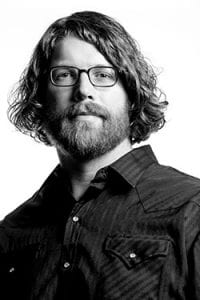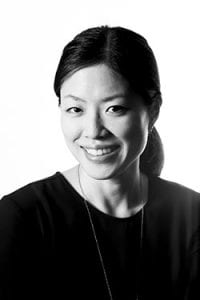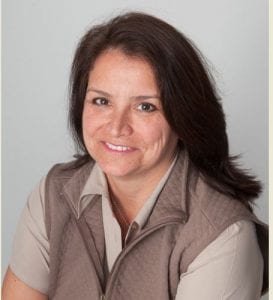 Professor Allison Dupuis is teaching ADV 4333 Topics in Digital Media Marketing for the Temerlin Advertising Institute. Professor Dupuis spent several years as a Career Counselor in the Hegi Career Center at SMU. She then transitioned to digital marketing and has built a successful career as a digital content manager at BuzzShift.
Professor Allison Dupuis is teaching ADV 4333 Topics in Digital Media Marketing for the Temerlin Advertising Institute. Professor Dupuis spent several years as a Career Counselor in the Hegi Career Center at SMU. She then transitioned to digital marketing and has built a successful career as a digital content manager at BuzzShift.
What made you want to become a professor?
I actually never thought I would be a professor. My dad has been a professor of Pharmacy at UNC-Chapel Hill for the past 30+ years, so I’ve been exposed to college life and higher education since birth. I love learning, working my interns at work, discussing new avenues of digital advertising, and exploring new sides of digital media, psychology, and technology. Considering the majority of expertise in my field is so new, I didn’t think that my career would take a traditional path towards teaching.
When the opportunity arose to teach digital content marketing at TAI last year, I jumped on it immediately. My sister is also a college professor, so it was nice to have two family members that could advise me on planning a curriculum, creating a grading system, and staying energized all semester long while balancing a full-time job, teaching, and life outside of work. Being a professor was never my plan, but I guess I may just be genetically predisposed to becoming “Professor Dupuis”.
What is your background in the subject you teach?
My background is a combination of traditional studies in sociology, psychology, strategic research and planning, and education plus self-taught experience in social media, graphic design, drawing, and photography.
My current work is all of those fields wrapped into one job as the Director of Content & Creative at BuzzShift. I focus in digital content strategy and help our clients at BuzzShift grow their businesses through online tactics and campaigns. My work analyzes target audience needs and wants to position a product or service as the optimal solution. I work with an amazing team to distribute creative and engaging content through social media channels, websites, emails, and other digital platforms.
A simple example of this work would be helping a company launch a workout app and running Facebook and Instagram ads to increase downloads to tech savvy individuals with a propensity for working out and brand affinities and online behavior connected to brands like LuLuLemon, SoulCycle, Nike, etc.
What has been your favorite memory from teaching for TAI so far?
There was one class where the room temperature was so uncomfortably hot. That day we were focusing on creative brainstorming and leveraging channels features to inspire great content. I decided it was the perfect opportunity to go outside and have a brainstorm in the fresh air. We had a lot of fun that day, explored various prompts and tactics, and my class came up with some amazing ideas on (1) how to celebrate Avocados on Instagram to increase awareness and then (2) creating a campaign that infuses the Starbucks into the wedding planning process to drive email acquisition.
What is your favorite part about being a professor, and what do you hope to get out of being a professor?
I just love learning about my students, getting them out of their comfort zone, and offering them help in whatever they need. We always start class with a fun personal question, have breakout projects, and I make sure we are actively reflecting and questioning everything. I want them to be honest with themselves, each other, and with me, so I do everything I can to get them comfortable with expressing their opinions every time we meet. We learned about new digital channels, brands, methods, and explored the best and worst of advertising together. I hope to always learn from others and have a great time discovering new ideas; and that was definitely the case with my class this fall.
What made you want to go into advertising? How did you get where you are in your career?
I always enjoyed learning about people and art & design. Honestly, I never planned to go into advertising. But looking back, I’ve realized that if you don’t understand human behavior and the art of persuasion, you’re going to have a really difficult time succeeding in business or relationships. And then in advertising and digital marketing, this is when you get to put a twist on that knowledge with art and design.
I was drawn to social media and technology because of the empowering and interesting effects it had on people. Before switching to an agency, I learned everything I know about design and technology from experts and explorers on the internet. Now I learn from my coworkers, industry, and the internet. I believe the most successful people in digital advertising and the people who push boundaries, hack the system, and always fight to individualize their brand messages for niche populations. After they figure out the right messages, they fight to ensure their ads include stand-out motion graphics and design. Why? Because we need them to stop scrolling and swiping and pay attention and fall in love with your brand.
I got where I am today because I said yes to learning, yes to new relationships and projects, yes to failing, and saying no to toxic environments and people.
How did you originally get to working at SMU? Why did you make the switch from working in the Career Center to becoming a professor?
I graduated with a masters degree in strategic planning & higher education from the University of Pittsburgh in 2011. I wanted to help students find great jobs, and leave college understanding who they are and who they want to be. Prior to my graduate program, I didn’t have a great job. It was 2008, and the economy wasn’t in great shape. I literally couldn’t even get a job at Forever 21. But luckily I was able to become a temp at Carnegie Mellon University and met so many awesome educators and administrators. Because my job would switch every few months, I was able to learn and develop my strengths and avoid roles that exacerbated my weaknesses. I knew if I could do this for myself, I could help other college students do the same before they graduated.
After a few years in higher education, counseling students and leading personal branding workshops on interviewing and LinkedIn, I made the jump to social media marketing for brands and businesses.
Last fall, more than 3 years after leaving SMU, I sat on a nonprofit social media panel for Social Media Dallas. Peter Noble from TAI just happened to be in the audience. I’m candid, a little fiery, and always trying to make a joke and I guess that stood out during the session. Peter approached me and recommended that I send him my resume for a potential teaching opportunity at SMU. I said yes, followed up (just like a typical career counselor would recommend you to do), and then said yes again to the job.
A lot of people might see the career jump as weird or unconventional (and it might be), but it always seemed like the planned happenstance theory in action. Build your skills and strengths and then just say yes.
How have you seen the advertising industry change since you started?
I’ve seen Amazon start to takeover the world and turn into an advertising platform following Facebook. Companies who still spend millions on TV commercials and billboards that have minimal tracking capabilities, yet distrust and fear digital ads (even though it has the proper targeting features, saving them money, and the human connection to our fans that we’ve wanted forever). I’ve witnessed 3rd party delivery systems turn the QSR industry on its head, and the life and death of Vine. It’s been an interesting road, and I can’t wait to see what I get to experiment with at work next.
How do you incorporate aspects from your work into your teaching?
Every class is a different perspective on traditional content marketing and advertising that I deal with at work. I break some classes down by topic (social media, influencers, email drip campaigns, paid media, etc.) or modern day advertising challenges and trends (6 sec ads that still need storytelling, brands & their trolls, or what we can learn about branding from online dating apps and transfer that to advertising).
At my job, we work hard, but we also get to know each other well and are very collaborative. I infuse those values into my class with breakout assignments and projects. Decks and presentations are also crucial to synthesizing complex digital methods and persuading those who control the purse string, so we actively discuss different philosophies on persuasion and positioning in business.
What is one interesting fact about you?
I’ll give you two. (1) I can jumprope on my butt and (2) I’m a quarter Korean with blonde hair and blue eyes.







